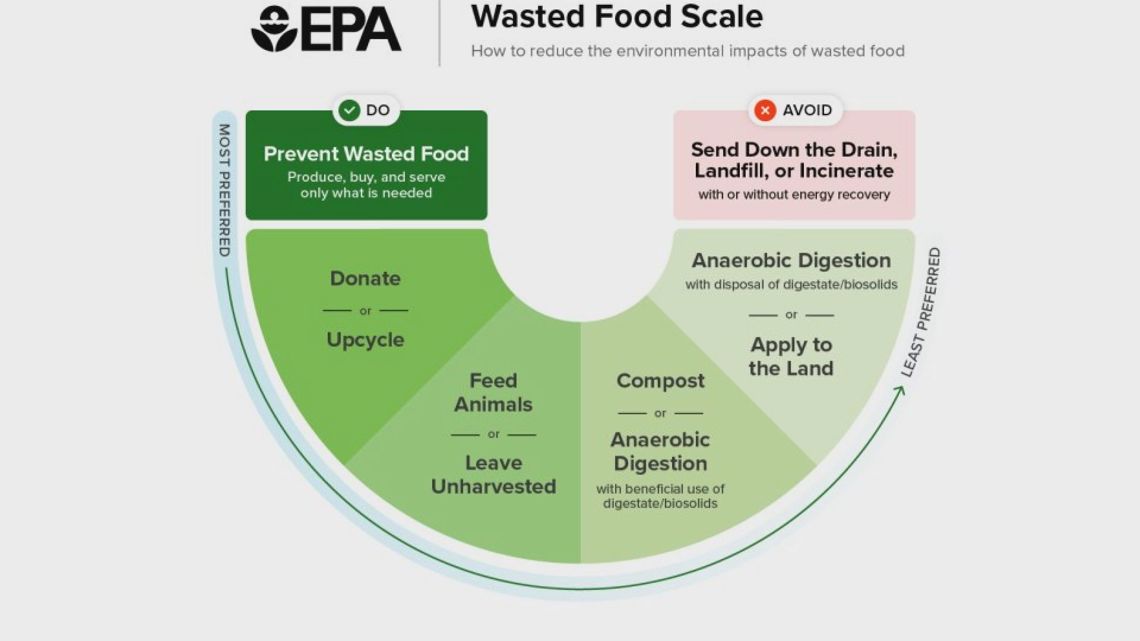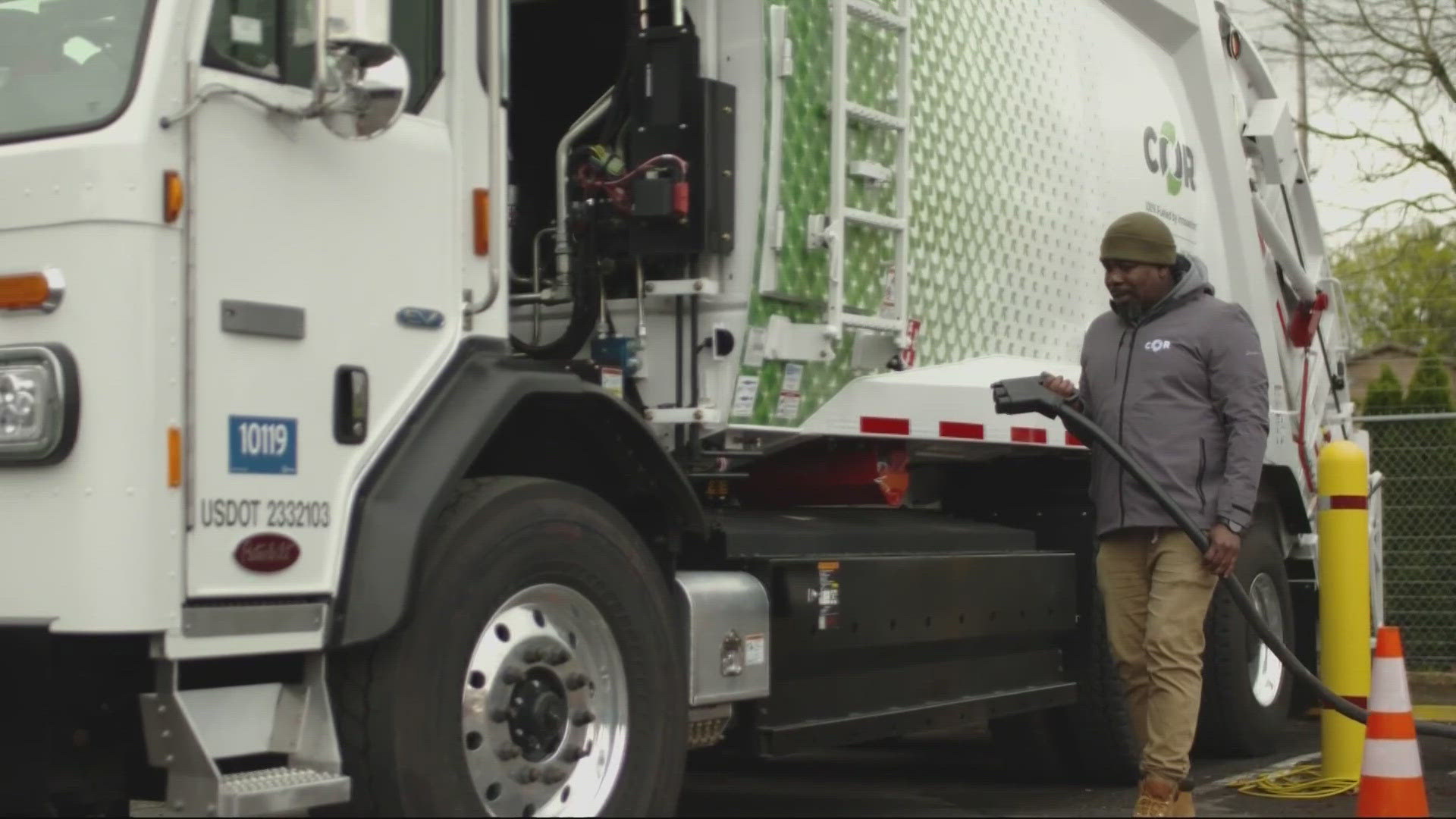PORTLAND, Oregon — Food is the largest component of the metro region’s garbage: about 18% of our overall disposed waste —more than any other material by far.
Businesses are responsible for more than half of that — approximately 100,000 tons of food per year, according to a 2020 report by Oregon Metro outlining plans to divert more food waste.
For the past few years, the city of Portland has been limiting the amount of food that can go into the trash. In September, that limit tightens up again — businesses that produce more than 250 pounds of food waste per week will be required to separate it from their garbage.
COR Disposal & Recycling, proud owners of Oregon's first all-electric garbage truck, is finding innovative ways to repurpose that waste.
"COR has sustainability woven all throughout its DNA," said CEO Alando Simpson. "I think we have a great opportunity in front of us right now to try to find higher and better usage of our commercial organic food scraps.
While many businesses already do compost, much of our food waste still finds its way to the bottom of a landfill, where it slowly decays, producing methane in the process, a greenhouse gas said to be 25 times more potent than CO2 with regard to global warming.
"I believe first and foremost, we should be considering, 'How do we upcycle and utilize our food for good and make sure that we're feeding people who are hungry?'" Simpson said.


Major food and catering centers are bound to this policy, and donations to local charities are a great way to reduce waste. Further up the wasted food scale, COR has more ideas to keep that food waste out of landfills.
"I believe there's a great opportunity for us to be able to convert food waste into animal feed. And then, lastly, there's a lot of new innovations and technologies that support our transition into creating more cleaner forms of energy by converting food waste into a feed stock for anaerobic digestion," Simpson said.
Those conversations extend to the classroom at Portland’s Lewis and Clark College.
"Sustainability, really, is about leaving the planet and leaving our community in a better way than we found it," said Amy Dvorak, the sustainability director for Lewis and Clark College.
COR is not only a waste-hauler for the college, but they also spend time with students educating them about the green economy.
"COR also has spent some time on our campus, so they come and talk with my sustainability and entrepreneurship class, really inspiring students to see a business that's modeled around having a positive impact in our communities," said Dvorak.
A core principle for the waste hauler: paying it forward.
"We're hoping that we can be an instrumental player in that and make sure that waste is at the front and center of those conversations and get people to understand that garbage can be used for good," said Simpson.

